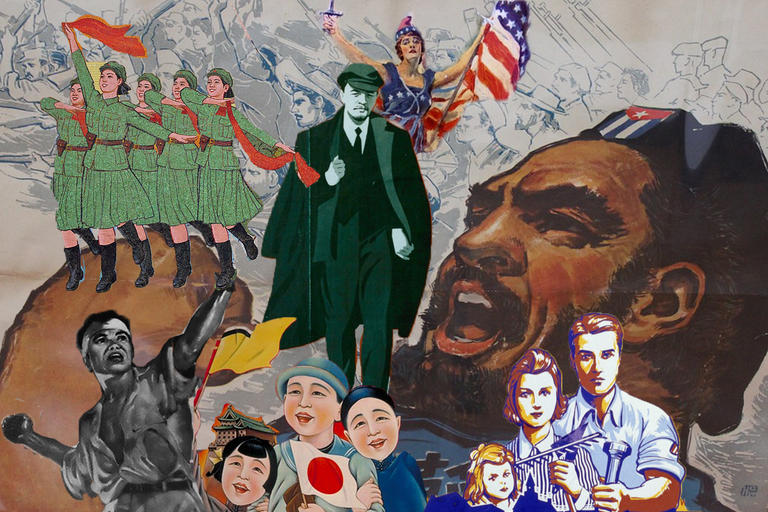Monday, June 22
9:30 - 11:30 AM
BRAND THE BELOVED COUNTRY: Nation Building and Nation Branding in Post-Apartheid South Africa
Karen Fiss
This presentation will examine how a particular constellation of aesthetics, spectacle, and nation building developed under fascism in the 1930s has evolved into the current practice of "nation branding" and the production of soft power. Numerous governments, including South Africa as it emerged from Apartheid, have commissioned external consultancies to assist them in attracting foreign investment, trade and tourism in an increasingly competitive globalized marketplace. How do these attempts at branding and "social engineering" impact notions of citizenship, belonging, and historical memory?
Tuesday, June 23
10:00 - 11:30 AM
BEYOND PROPAGANDA: Children's Literature of North Korea
Dafna Zur
This presentation will consider the intersection of propaganda and literature for children, will introduce some of the history of children's literature in Korea, and will end with a discussion of North Korean science fiction.
Wednesday, June 24
10:00 - 11:30 AM
Fiestas as Propaganda in the Spanish Empire
Kristie Flannery
11:30 AM - 12:30 PM
"PENGKHIANATAN G 30 S/PKI": the most successful propaganda film you have never heard of (Part 1 of 2)
Michael Vann
In 1984, the Indonesia military dictatorship released a sprawling and gory 4 ½ hour docudrama about the murder of 6 generals, a little girl, and a few other low-level officers during a failed coup d'état on the night of September 30/October 1, 1965. The coup, known as G30S or September 30 Movement, was an internal army affair, but it served as the pre-text for the upstart General Suharto to seize power from President Sukarno, Indonesia's founder and leader of the international non-aligned movement. Suharto also used the coup as an excuse to eliminate the Indonesian Communist Party (PKI), the largest Communist party outside of the USSR and the PRC. Suharto's forces killed somewhere between 500,000 and a million people in 1965 and 1966 and an equal number were arrested, tortured, and imprisoned as slave labor for years. In addition to real and alleged members of the legal and unarmed PKI, the army and civilian militias attacked feminists, union members, artists, and anyone who they deemed an enemy. To solidify his rule and maintain power for 32 years, Suharto established one of the most effective propaganda machines in the 20th century. This film was a crucial component of Suharto's propaganda. In addition to state ceremonies, statues, and renamed streets, "Pengkhianatan G 30 S/PKI" was broadcast on national television every year on the anniversary of the coup and school children were required to watch it. Even after the fall of this corrupt and brutal dictator, generations of Indonesians believe in the false narrative portrayed in this film.
Thursday, June 25
10:00 - 11:30 AM
CANNIBALS: Propaganda and Terror in West Central African History
Jared Staller
In the 16th and 17th centuries Europeans who traveled to the Congo River region of Africa wrote well-known texts alleging a group called Jaga were cannibals, or man-eaters. Written and oral documentation shows local African leaders did the same. In this session, we will talk about the meanings of this cannibal propaganda, who benefited from spreading the message, and long-lasting consequences for local politics and Western biases about the region that persist into present times.
Friday, June 26
10:00 - 11:30 AM
"PENGKHIANATAN G 30 S/PKI": the most successful propaganda film you have never heard of (Part 2 of 2)
Michael Vann

